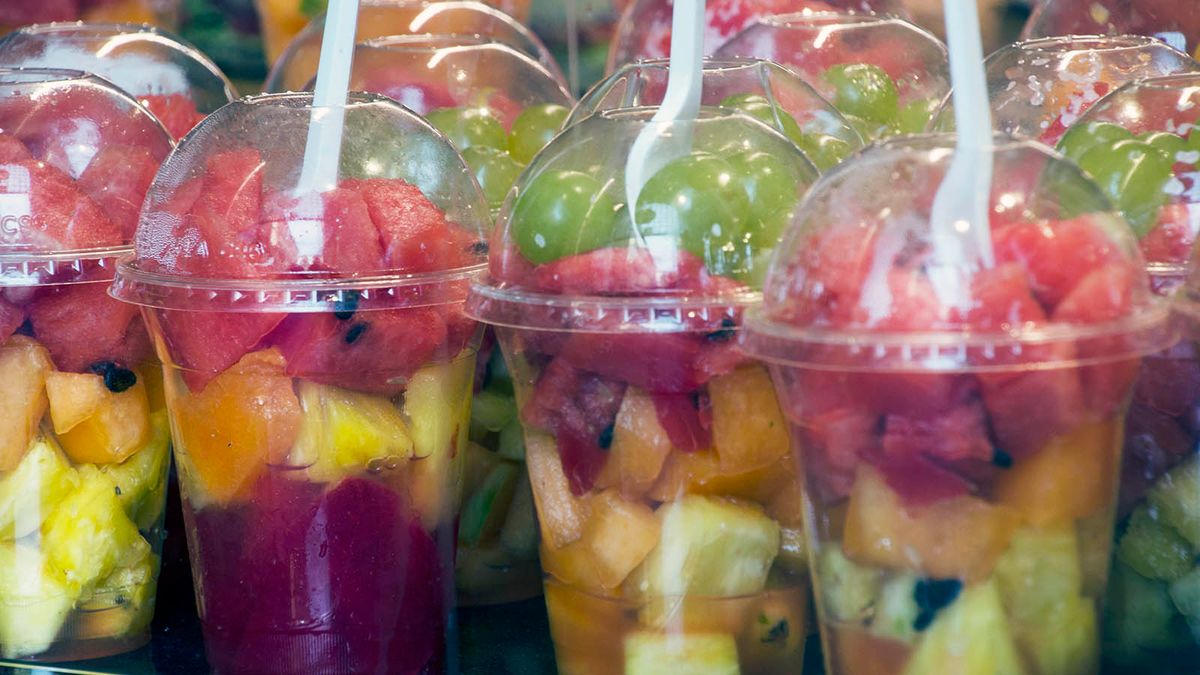
Think banning all of this plastic is overkill? There are some very solid reasons why it makes sense. First, plastic in landfills just doesn’t go away. According to Weldon, a plastic bag takes 10 to 20 years to degrade, while a plastic bottle takes almost 500 years. And, even when it’s “gone,” its remnants remain.
“Plastic never breaks down or goes away; it only breaks into smaller and smaller pieces until they’re so microscopic they can be found in our air and our drinking water,” Kathryn Kellogg, author and founder of the waste-reduction website Going Zero Waste, says via email.
Advertisement
Some grocery stores have switched to biodegradable plastic shopping bags as a way to meet consumers in the middle, but research shows this is hardly a savvy solution. One study from researchers at the University of Plymouth in England analyzed 80 single-use plastic grocery store bags made of biodegradable plastic over the course of three years. Their goal? Determine just how “biodegradable” these bags really were. Their findings were published in the journal Environmental Science & Technology.
Soil and seawater didn’t lead to bag degradation. Instead, three of the four types of biodegradable bags were still sturdy enough to hold up to 5 pounds (2.2 kilograms) of groceries (as were the non-biodegradable bags). Those exposed to sun did break down — but that’s not necessarily positive either. The small particles from degradation can quickly spread through the environment — think air, ocean or the belly of hungry animals who mistake plastic fragments for food.
Advertisement
